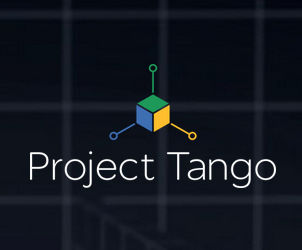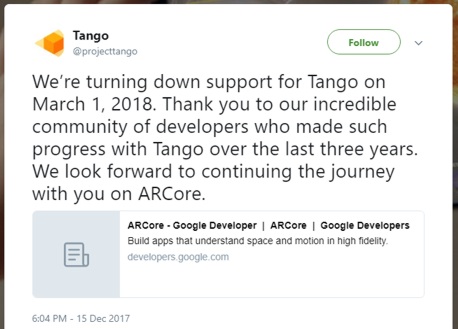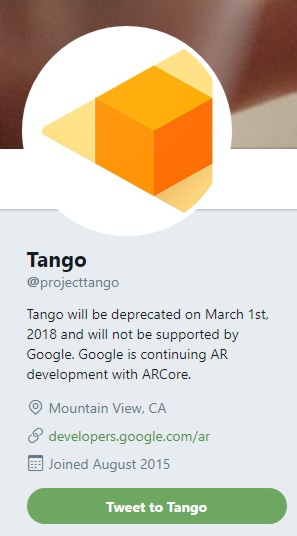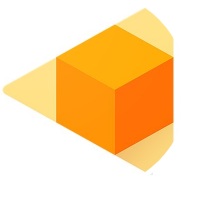| Google's Project Tango Shut By Tweet |
| Written by Harry Fairhead |
| Monday, 18 December 2017 |
|
Project Tango, Google's first attempt to provide an augmented-reality experience. is being deprecated according to an announcement on its Twitter feed.
Goolge's Project Tango was publicly revealed nearly 5 years ago with the aim of bringing augmented reality to phones by enabling devices to be able to sense where they are and what is around them. By way of prototype hardware, early access partners worked with a device known as the Peanut. This was succeeded by the Project Tango Tablet Development Kit, which initially had a price tag of $1024 and was only available to developers who applications were accepted but a year later was reduced to $512 and sales were opened up to all developers just prior to Google I/O 2015.
In August 2015 Intel demoed its Tango phone, as part of the RealSense Smartphone Developer Kit which went on sale for $399 at CES in January 2016 but within six months when Intel decided to cut the development of its Atom processors it also withdrew the Tango phone.
Also at CES 2016, Google and Lenovo announced a consumer-targeted Project Tango smartphone and at Google I/O 2016 an App Incubator was launched for submitting proposals for gaming and utility apps so that when the phone shipped there would be something for customers. The Lenovo Phab2Pro did go on sale with a price tag of $500 in November 2016 but attracted criticism for being bulky and heavy and was described as "gigantic" by Android Police. The only other phone for Project Tango, the ASUS ZenFone AR, was launched as a Verizon-exclusive in August 2015 but is no longer available. Now Google has decided to pull the plug on Project Tango and will cease to support it on March 1st 2018. The announcement came in a tweet that was noticed by Android Police.
Both the tweet and the @projecttango profile make explicit that while Project Tango is being dropped, ARCore, Google's software-only solution for augmented reality which is similar to Tango in functionality, but doesn't require specialized hardware, will continue to be developed.
We have criticized Google on several occasions for encouraging developers to invest time (money) and effort in experimental projects and then abandoning them. On this occasion it might be justified for a hardware-based project to give way to a software-based one given how the AR scene is dominated by hardware that Google is unlikely to want to compete with. The newly launched Amazon Sumerian, an AWS service to help developers creating AR/VR applications, has support for multiple platforms, starting with Oculus Rift, HTC Vive, and iOS mobile devices also announced support for Android ARCore as coming soon. Being on the bleeding edge of technology is always risky but following Google seems more risky than average.
Related ArticlesGoogle Moves Into 3D With Project Tango Project Tango Tablet Hardware And SDK Announced Amazon Sumerian For Building Virtual Environments To be informed about new articles on I Programmer, sign up for our weekly newsletter, subscribe to the RSS feed and follow us on Twitter, Facebook or Linkedin.
Comments
or email your comment to: comments@i-programmer.info |
| Last Updated ( Monday, 18 December 2017 ) |







